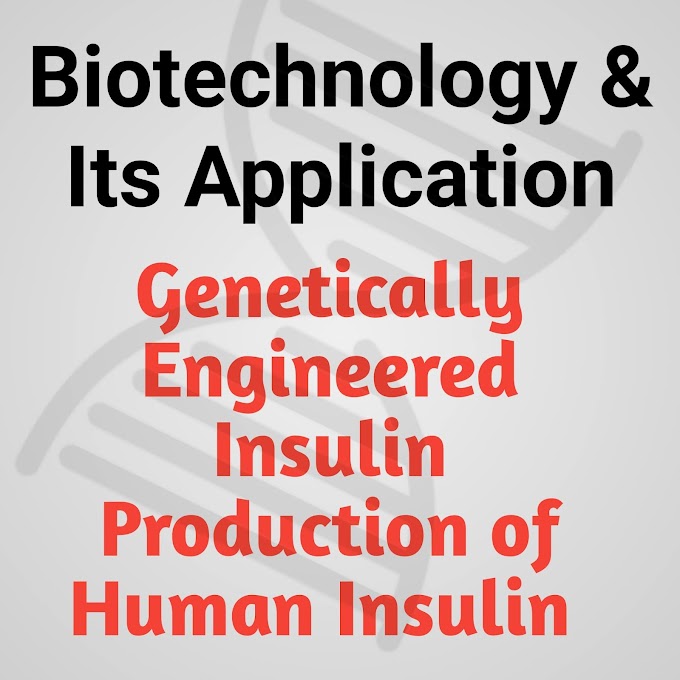👉 NEET Biology Examination
👉 NEET Biology Tips
👉 NEET Biology Study Material
👉 UGC Net Study Material
Transgenic Animals
- The animals which carry foreign genes are called transgenic animals.
- Production of Transgenic Animals
- The foreign genes are inserted into the genome of the animal using recombinant DNA technology.
- The production of transgenic animals includes
- Location, identification and separation of desired gene.
- Selection of proper vector ( generally a virus ) or direct transmission.
- Combining the desired gene with the vector.
- Introduction of transferred vector in cells, tissues, embryo or mature individual
- Demonstration of integration and expression of foreign gene in transgenic tissue or animal.
- Biological Products
- Medicines required to treat certain human diseases can contam biological products, but such products are often expensive to make.
- Transgenic animals that produce useful biological products can be created by the introduction of the portion of DNA (or genes) which codes for a particular product such as human protein ( alfa - 1 - antitrypsin) used to treat emphysema, tissue plasmogen activator (goat), blood clotting factors VIII and IX ( sheep ) and lactoferrin (cow).
- Attempts are being made for treatment of phenylketonuria (PKU) and cystic fibrosis.
- In 1997, the first transgenic cow, Rosie, produced human protein enriched milk (2.4 gms per litre).
- The milk contained the human alpha - lactalbumin.
- It is a more balanced product for human babies than natural cow - milk
- Vaccine Safety
- Transgenic mice are being formed for use in testing the safety of vaccines before they are used on human beings.
- Transgenic mice are being used to test the safety of the polio vaccine.
- Chemical Safety Testing
- It is called as toxicity / safety testing. Transgenic animals are developed that carry genes exposed to the toxic substance and their effects are studied
- Normal Physiology and Development
- Transgenic animals are specifically devel oped to study how genes are regulated, and how they affect the normal functions of the body and its development, e.g. , study of complex factors involved in growth such as insulin - like growth factor
- Study of Diseases
- Many transgenic animals are developed to increase our under standing of how genes contribute to the development of disease so that investigation of new treatments for diseases is made possible.
- Now transgenic models exist for many human diseases such as cancer, cystic fibrosis, rheumatoid arthritis, Alzheimer's disease, haemophilia, thalessaemia, etc.
- Growing of Spare Parts
- Spare parts (e.g. , heart , pancreas) of pig for human use can be grown through the formation of transgenic animals.
- Replacement of Defective Parts
- Re placement of defective parts with freshly grown part from own cells can be done.
- Production of Clones
- Clones of some animals can be produced. Even human clones may be formed if ethics allow the same.
========================================






Please do not enter any spam link or word in the comment box